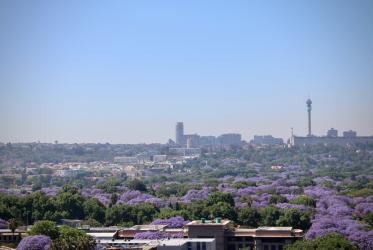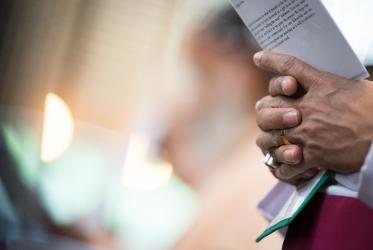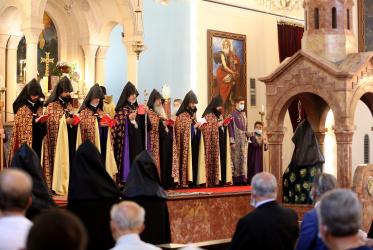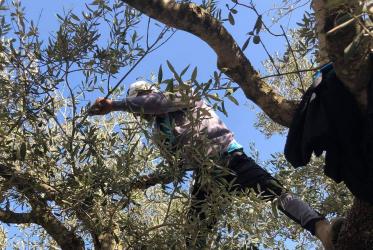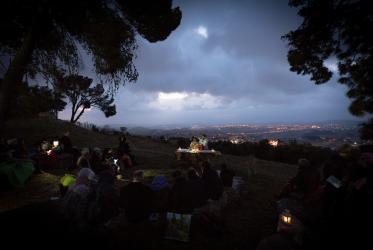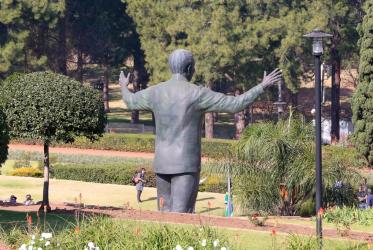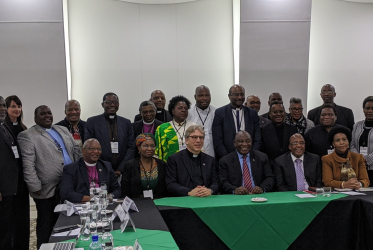Displaying 41 - 60 of 285
“Your life is in peace when you collect the olives"
29 October 2020
“Olive trees are holy signs of peace, older than anyone”
22 October 2020
Ecumenical prayer for peace in Syria
16 December 2019
12 Faces of Hope on display in Wales
12 December 2019
WCC delegation meets with South African President Ramaphosa
09 December 2019
WCC expresses hope for work of the Syrian Constitutional Committee
01 November 2019

